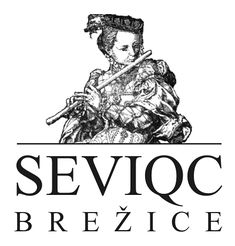Coordinator: Centre culturel de rencontre d’Ambronay (FR)
Partners: Ars Ramovš zavod za umetnost, marketing, promocijo in investiranje, Ljubljana (SI), Early Music Centre of the National University of Music (RO), Göttingen International Handel Festiva (DE), Ghislieri Musica (IT), Ozango (FR), National Centre for Early Music, York (UK), Riga Early Music Centre (LV)
Project duration: 1. 10. 2014 – 30. 9. 2018
EU support: 1.971.374,59 EUR / Total project budget: 4.079.347,36 EUR
‘eeemerging’ is a contraction of three very significant words: Emerging European Ensembles.
This innovative European collaboration project is the fruit of work by the eight co-organisers: Ambronay Cultural Encounter Centre (leader), the Bucharest National University of Music, The Göttingen International Handel Festival, Ars Ramovš in Ljubljana, Ghislieri Musica in Pavia, Riga Early Music Centre, the audiovisual production company Ozango in Strasbourg and the York National Centre for Early Music.
Together they have observed that artistic excellence alone is not enough to forge a career in early music, a field which is disparate and unevenly developed in Europe. The process put in place by the eeemerging project will allow young emerging ensembles to learn about the particular features of the international market as well as showcasing their artistic excellence and the quality of their common European musical heritage – sometimes known, more often misunderstood or even unknown.
To achieve this, eeemerging will select each year the most promising European ensembles and offer them specialist training tailored to their needs. It will offer them residencies in Europe for a maximum of three years, and assist in their international dissemination through concerts or digital products. Finally, it will promote them through the production of audiovisual products and the creation of digital sites and platforms. The two best ensembles from each cycle will be given the opportunity to make their first professional recording. The co-organisers and the emerging ensembles will benefit from numerous international partnerships (in Belgium, Croatia, Danemark, France, United-Kingdom, Hungary, Italy, Lebanon, Malta, Poland, Portugal, Serbia, Spain, Switzerland, The Netherlands) and from the support of three renowned universities (Belgrade, Lyon and Valencia) who are responsible for the assessment of the project. (Source: EAC.)








